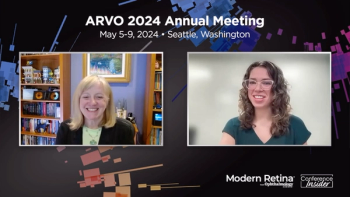
Wisdom from ESCRS presenters and attendees for young ophthalmologists
At this year's ESCRS meeting, industry leaders shared advice for young ophthalmologists–and what they wish they'd known earlier in their careers
Earlier this year, Ophthalmology Times Europe spent time in Vienna, Austria, for the annual meeting of the European Society of Cataract and Refractive Surgeons (ESCRS). While there, we asked industry leaders for their insights on their ophthalmology careers. Their wisdom is valuable for young ophthalmologists, longtime practitioners and anyone working in this ever-changing field.
Here's what Greg Kunst, Prof Dr Rohit Shetty, and Dr Dee Stephenson had to say.
Greg Kunst, CEO, Aurion Biotech: This is a very small, boutique industry of deep relationships. The value and importance of building those relationships are critical to success. In other areas of medicine, that's probably less true, but in this area, you know, people people stay for most of their careers. The relationships have allowed innovation to move much faster. I mean, there's the ability for doctors to articulate the challenges they face and for innovators to then try to address those challenges with different solutions. And on the drug, device and diagnostic side, that, that's what makes this industry great. And so that would be the area I would, I would say to people is, make sure you spend time building those relationships.
Prof Dr Rohit Shetty, DNB, FRCS, PhD; Consultant Cornea and Refractive Surgery Chairman, Narayana Nethralaya, Bangalore: Don't expect your medicine to be an extension of your past or present. Your future of medicine is going to be completely different. And the future is out there [on the conference floor]. You go to meetings, to every new booth, every new area, and when you start going there, you pick up on every new aspect of new technologies, which are going to come to your clinic.
Dee Stephenson, MD, FACS; CEO, Stephenson Eye Associates; President, American Board of Eye Surgery: Well, I've been an ophthalmologist for 33 years. And when I made the choice, it was the right choice at the time and I have never looked back. If I had it to do all over I'd still be an ophthalmologist, but–the technology keeps changing and changing and changing. And I have every bell and whistle in my OR, and in my office. So I have a boutique practice, but cutting-edge. And, you know, the technology is just incredible. All I know is that I made the right choice and–and it's been very fulfilling and it's you know, I'm enjoying being an ophthalmologist still today.
Newsletter
Get the essential updates shaping the future of pharma manufacturing and compliance—subscribe today to Pharmaceutical Technology and never miss a breakthrough.
























